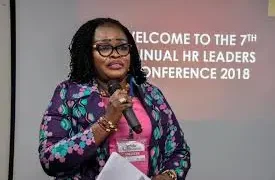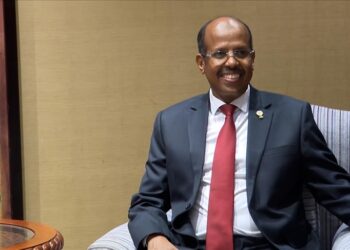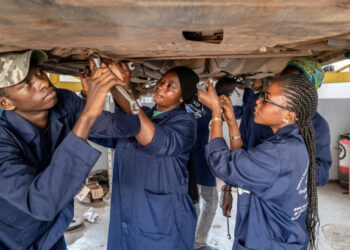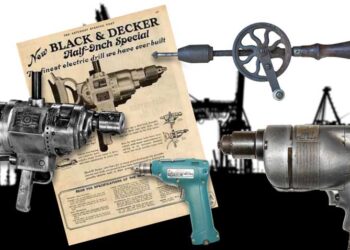
That takes us to the next question which is, at what stage in a nation’s education system should TVET be introduced? Is it in primary or secondary school?
I would say roughly at the secondary school level, though possibly a little earlier just because people can be exposed to what they may end up doing later in life, early enough. However, children should be given time to discover for themselves what their inclination is. What do they like to do vis-a-vis what they are actually good at. So, given this time to discover themselves some may say I want to work with cars or I want to work with engines meaning they want to do technical things and work with their hands. For such a person, yes, TVET may be their path so they can carry out repairs on cars, electric vehicles or whatever the latest technology might be. The greatest motivation arises from when someone really wants to do something and is presented with the right opportunities as this would push them to really go for it. This results in people who are highly motivated in their jobs, so I would say TVET is better introduced at the secondary school level. In addition, if TVET can be introduced as a pathway that is not a step down but as one that can lead to both highly rewarding and lucrative careers that would also be very helpful.
Technical education is often viewed as an inferior form of education in Africa, what can be done to change this perception?.
Well, I think one thing for sure is to showcase the careers that are possible with this kind of education. Identify individuals who have followed the TVET pathway, who started by working for a company or at a factory and have developed themselves into what they are today. A good example are the two boys from Botswana who, having pursued technical education, are now working for a very reputable company in Germany. In Nigeria, with the commencement of operations at the Dangote Refinery, some of the technicians there can decide to further their studies at university having already gained very good practical experience and the combination of TVET and a university degree could open up countless opportunities for them. It’s for them to consider the options they have. How do they want to develop? What should be their next steps? The possibilities are endless. And that’s why your publication is great, because it is in a good position to really showcase the options and opportunities people have with a TVET education. The other thing that can be done is for the companies where technicians work to pay more attention to their employees. Improve the working environment to make it more comfortable for the technicians. Make them feel appreciated by treating them well. Demonstrate the confidence that you have in their abilities. If the company acknowledges that the technician is a product of a good technical school, is able to start working on the machines immediately and is able to perform very well with minimal supervision, then appreciate them for that. Treat them accordingly as they could be in the position to make the best suggestions on how production or repairs can be improved, while even recommending what can be done to upgrade machinery. The next thing to do is to improve their welfare, improve their salary structure to better reflect the value they add to the company. All this will not only boost their morale as able technicians but it would also improve how TVET is viewed by the general public. These are some things that can be changed that would certainly make a difference.

Tell us a little about Didacta where you head presently. And does Didacta have any plans or ambitions for the African market?
So Didacta that I’m working for now is an association that has about 250 member companies. And these member companies are all in the education industry. These are companies doing furniture, especially for schools, kindergartens and for universities. These are companies that do technical equipment, companies that do software for managing training institutions. These are companies that can build training institutions from scratch, let’s say the Greenfield approach. Starting from how big you need the buildings to be, what type of equipment you require in the training centre in addition to the more rudimentary infrastructure such as the power supply, water supply and others. And then we have the companies that produce books, curricula and so on. So just about everything you can think about in the education space. These companies are our members. The Association has an overview of all the phases of education starting from early childhood, which is not just a matter of caretaking but is also education. So, what kind of skills do the very young ones need to receive before proceeding to primary school and then secondary school? Which is the second phase. We oversee that as well. And then after secondary school, a TVET school or they may go for university. So TVET is the third phase that we oversee and then tertiary and further education for even matured adults is the 4th phase. And the association acts as a sort of bridge between the different phases right from early childhood to higher education.
So that is what the association is doing. We have lots of active member companies, some of which are from Africa including Nigeria, especially those in the technical education and vocational training space. These companies are active both at the national and international level. And for your second question, do we have any focus on projects in Nigeria at the moment? The answer is no, we don’t. We don’t have any yet as we are a small association with quite small staff here in the office, which doesn’t permit us to run big projects like I have done before. But having said that, it is well known that Nigeria has a very young population which means there is a great need for education – the whole gamut of education from early years to TVET to further education – which means that there are abundant opportunities, so there are certainly possibilities for us to be active in Nigeria in the future.
______________ Dr. Norbert Völker is Managing Director of Didacta, the Association for Education Suppliers in Germany. His goal is to make education – from early childhood to k-12 and tvet up to tertiary and further education available to everyone. The Didacta Association advocates that education is a matter of relevance to society as a whole, and that it is the responsibility of all key members of society to work in unison to ensure that educational opportunities are available to all. The Didacta Association accepts the challenges posed by digital transformation and promotes the continuous and innovative development of educational systems. Didacta Association hosts the internationally renowned professional trade fair for the education suppliers – the largest event of ist kind “didacta” in Germany including conferences and exhibitions. Before Dr. Norbert Völker was Head of Education International and Project Director of the Initiative “Skilled Workers for Africa” at the German Machinery and Equipment Manufacturers Association (VDMA) in Germany – comprising 3600 engineering member companies, making it the largest association all over Europe. With more than 80% of exports, this industry needs skilled workers worldwide. His project ran successfully in three African countries: Nigeria, Kenya and Botswana and cooperated with African training centers and companies to produce industry ready skilled workers – preparing them for Industry 4.0. Together they developed the first Mechatronics apprenticeship training (3 years, level 5) in Botswana and Maintenance Technologists (18 + 12 months) in Nigeria and offered technical short courses such as hydraulics, pneumatics, programmic logic controller (plc) and maintenance in Kenya also. Dr. Völker started his career path with an apprenticeship to a coach builder at BMW in Frankfurt Germany, followed by a study course in vocational education at the Technical University of Darmstadt. The combination of practical-technical skills and the knowledge of education gave him the chance of heading the teaching and learning at the Institute of Material and Testing at the Technical University of Darmstadt. There he modernized the teaching and learning especially by integrating cooperative projects with industry and by adding Information Technology Solutions. After finalizing his doctorate in engineering education, he left Germany in 2009 with his family and worked for the Ministry of Education in Botswana as a TVET specialist and advisor. Back in Germany in 2011 he joined the VDMA and managed the project “Maschinenhaus” that consulted more than 30 universities for better teaching and learning in mechanical and electrical engineering study courses before he led the Africa initiative at VDMA and changed to be managing Director at Didacta in 2024. LinkedIn: Dr. Norbert Voelker


















































































 EduTimes Africa, a product of Education Times Africa, is a magazine publication that aims to lend its support to close the yawning gap in Africa's educational development.
EduTimes Africa, a product of Education Times Africa, is a magazine publication that aims to lend its support to close the yawning gap in Africa's educational development.